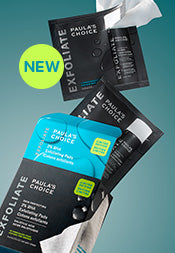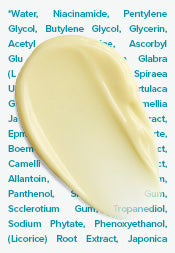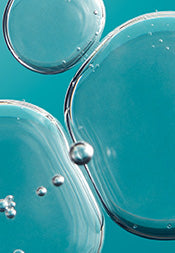How to Prevent Acne
We’ve covered the common causes of acne and how to get rid of it in dozens of articles over the years — and with good reason. After all, it’s a prevalent topic given how many people suffer from acne and it’s a subject Paula feels strongly about, given her own struggle with breakouts.
If you’re someone that is prone to adult acne, you probably feel like you’ve already tried everything, perhaps too little or no avail. However, we at Paula’s Choice take a different approach here, to bring you the information and research you most likely haven’t heard before that can help keep acne from tormenting you in the first place or, at the very least, make it less severe!
8 Ways to Keep Acne at Bay
An overarching, often missing piece of acne advice is that anything you can do to avoid aggravating your skin is going to help minimise breakouts and their redness. This also includes not disrupting your skin's microbiome, as they play an unseen role in controlling one of the biggest triggers behind the cause of acne. It’s rare advice but vitally important.
Tweaking your skincare and makeup routine to avoid skin-aggravating products and only using acne prevention products that are non-irritating is our best advice to you, results of which you’ll see in the mirror in a matter of days.
- Toss out skincare and makeup products that contain high amounts of SD or denatured alcohol. Alcohol is a common ingredient in cosmetics geared toward acne-prone skin, and while it may seem as though it’s drying out a pimple, it actually triggers more oiliness that can cause further redness and worsen your breakout.
- Avoid thick or solid makeup products like sticks or creamy compact foundations. The types of ingredients that help keep these products in a solid or semi-solid form (often waxes, or similar ingredients like polyethylene or ethylhexyl palmitate) are iffy for those with breakout-prone skin. Avoid heavy moisturizers with these ingredients as well. Instead, look for lightweight gels or sheer lotions.
- Remove makeup before going to bed, no matter how tired you are. Sleeping with makeup on can lead to clogged pores that cause acne and red, puffy-looking eyes. If you wear heavy makeup, consider pairing your cleanser with a gentle makeup remover and follow up with a soothing skin toner to ensure any last traces of makeup are gone while replenishing your skin at the same time.
- Don’t overdo cleansing your face. Clean skin is a good thing, as mentioned above, but over-washing is not—it can actually aggravate acne-prone skin even more. The best method is to wash your face only twice a day (once in the morning, once at night) with a gentle, water-soluble facial cleanser.
(Don’t use bar cleansers – they can leave film or residue on your skin, which in turn can clog pores and lessen the effectiveness of any anti-acne products you apply after cleansing. Furthermore, they are drying, which is never a good thing for any skin type.)
- Stay away from scrubs and loofahs or rough cleansing brushes. The research is abundantly clear that using a salicylic acid exfoliant will give you triple the benefit! You can’t scrub a blemish away, and more to the point, scrubs can make acne and redness worse due to their abrasive texture.
Salicylic acid (also known as BHA) offers a much more effective, gentle, and ultimately natural way to exfoliate your skin. Even better, BHA can dissolve oil, keeping pores free of debris which means there’s less chance for acne breakouts to form in the first place!
- Use lighter hair-care products. If your hair drifts over certain areas of your face, keep in mind that traces of the products you use to style your hair will also end up on your skin. That means if you have acne-prone skin, you should avoid thick, waxy styling products, or too much hairspray/mousse as they can clog pores and lead to breakouts along the hairline.
- Protect yourself from the sun. You might have heard that some amount of unprotected sun exposure can “clear up” acne breakouts, but in reality, it leads to sun damage. This damage weakens the skin, which negatively impacts acne. If you’re concerned that the creaminess of an SPF product may cause breakouts, opt for a fluid, lightweight formula; it might just change your mind about sun protection (we certainly hope it does). No matter what skin type you have, SPF is critical for your skincare routine. When used as directed with other sun protection measures, it decreases the risk of skin cancer and early skin ageing caused by sun damage.
- Use benzoyl peroxide preventatively as opposed to only applying it only once a breakout has surfaced. Benzoyl peroxide is a powerhouse ingredient for preventing acne eruptions before they happen. Use it consistently in your breakout-prone areas, give it a couple of weeks, and you will see what we mean! We strongly recommend you try starting with a 2.5% concentration, and if stubborn acne persists, move up to 5% concentration formulas.
Key Points to Remember
While this might seem like a lot of information to digest all at once, using these acne prevention tips will save you from the frustration of dealing with its aftermath later on. And if nothing else, remember this: Be gentle on your skin; avoid heavy, waxy products; and use salicylic acid and benzoyl peroxide consistently to help prevent breakouts from forming!
Learn more about the causes and how to prevent acne breakouts.
Shop for effective acne-prone skincare products online today










